Queen Elizabeth Prize for Engineering 2019: Greatest feats of engineering
- Published
- comments

GPS satellites revolving around the Earth.
The Queen Elizabeth Prize for Engineering 2019 has been announced. The prize is the world's most respected engineering award that celebrates the global impact of engineering on society.
This year's winners are four engineers who created GPS, the first truly global, satellite-based positioning system.
Dr Bradford Parkinson, Professor James Spilker, Jr, Hugo Fruehauf, and Richard Schwartz developed the Global Positioning System. It allows anyone with a smartphone to pinpoint exactly where they are on Earth.
What is GPS?
GPS uses a group of satellites in space to send radio signals to a device on Earth. The signals travel at the speed of light.
GPS has transformed the way we live. Billions of people around the world rely on this huge engineering network that extends across our planet and into space.
It allows us to navigate using our phones. It's used in farming, rescuing ships, helping locate ocean plastics, and even by spacecraft in outer parts of our Solar System.
GPS can determine a location to within a millimetre. It can track the movement of glaciers, detect whether tectonic plates are shifting apart. and observe the build-up of stresses that lead to earthquakes.
A pretty impressive invention!

16-year-old Jack Jiang is interested in architectural engineering.
The trophy given to this year's winners was designed by 16-year-old Jack Jiang from Hong Kong.
He won the 2019 Create the Trophy competition for young designers.
Jack's intricate design impressed the judges with its complexity and balance, combining traditional trophy shapes with elements of modern wind turbines.
Jack is currently in Year 11 studying Chemistry, Physics, Biology, English, Maths, and Art. He believes that engineers are key to solving the world's future challenges.
There are countless environmental problems around the world, and right now they are only getting worse. However, I know that it will be engineers that provide solutions to them

Jack's trophy design captivated the judges.
When asked about the inspiration behind his design, Jack said: "The inspiration behind this design came, in part, from more traditional trophy shapes. It was also inspired by the efforts of engineers working with sustainable technology, and so I incorporated the design of wind turbines, which can be seen from above."
To celebrate the innovative ways humans have transformed the world, Newsround has taken a look at some of the greatest feats of engineering across the globe. Strap in for some mind-boggling buildings, people!
1. Burj Khalifa, world's tallest building
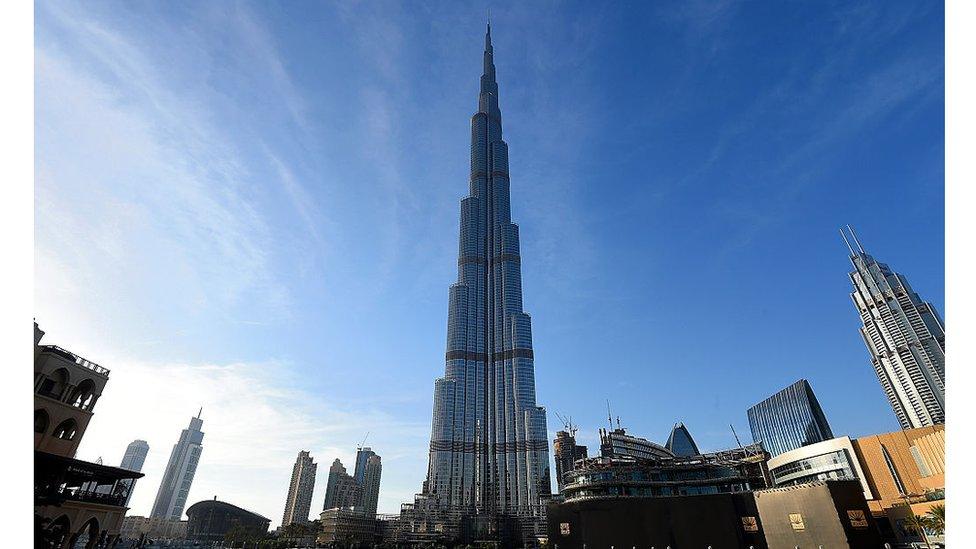
Standing head and shoulders above the rest of the crowd, here's the Burj Khalifa building in Dubai, United Arab Emirates.
Ever seen a skyscraper this huge before? Meet Burj Khalifa, the world's tallest building.
It's a staggering 2,716.5 feet tall - that's about the same as putting 188 double-decker buses on top of each other! Wow.
Bringing Burj Khalifa to life took a lot of scientific know-how and a BIG vision. It has more than 160 floors, making it the largest amount of floors in the world.
2. The Skywalk, world's longest horse-shoe glass bridge
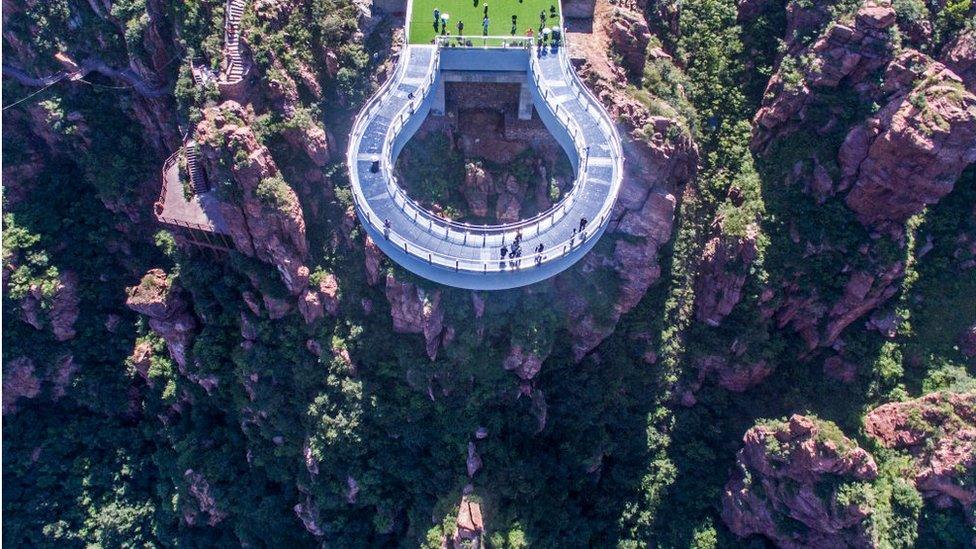
Ever seen a bridge quite like this?
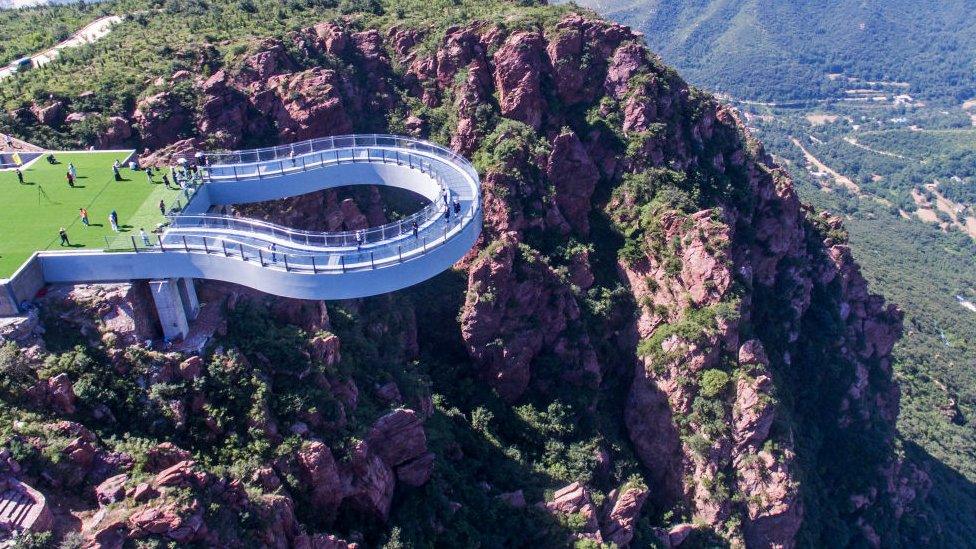
Aerial view of tourists walking on the glass skywalk at Fuxi Mountain in Xinmi, Henan Province of China.
Don't look down! This is the view of a horseshoe-shaped glass bridge on Fuxi Mountain in China.
The glass platform extends 30 meters out from the cliff and is 360 meters above the valley floor.
It's certainly one way to admire the mountains that isn't for the faint-hearted!
3. The Millau Viaduct, world's tallest bridge
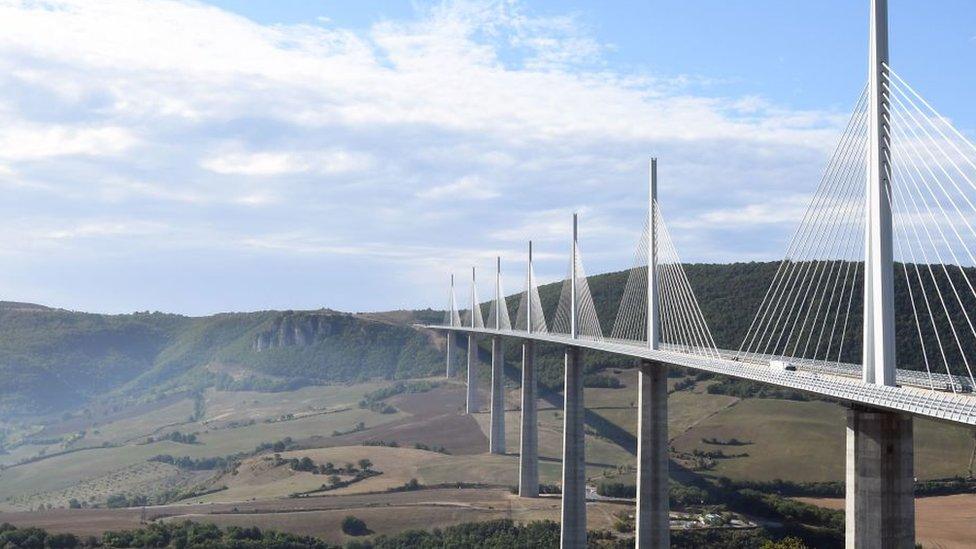
Imagine travelling across this bridge on your way to school!
This bridge looks like it's been lifted right out of the pages of a sci-fi novel!
It's the Millau Viaduct in France and is on the route you would take from Paris to Spain. It is supported by seven concrete pillars, the tallest measuring 804ft from the ground to the road.
The pillars also support seven huge masts. The distance from the bottom of the valley to the top of the masts is a whopping 1,125ft!
4. Bailong Elevator, world's tallest outdoor elevator
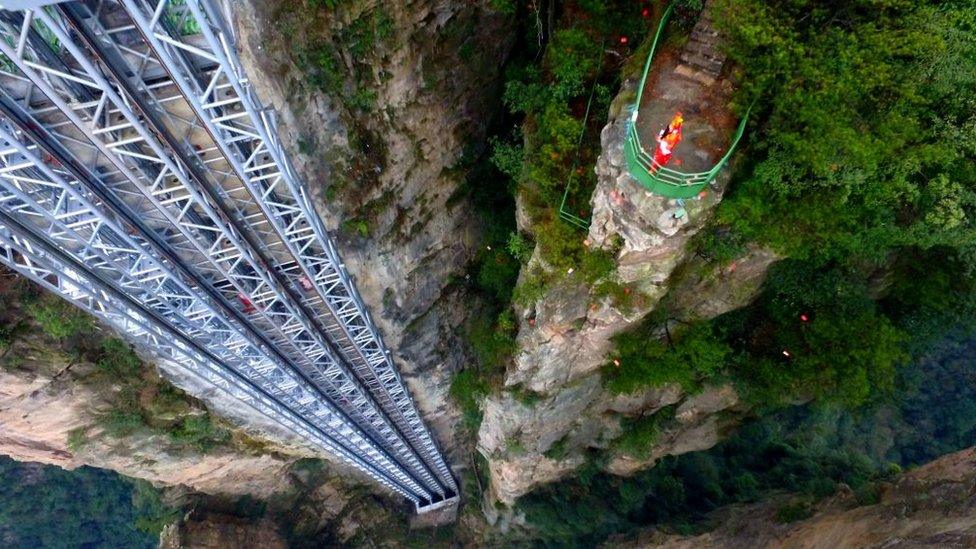
Fancy taking a ride up this spectacular lift built on the cliff face of a mountain in China?
Scared of heights? Look away now! This is the Bailong Elevator in China, which is the world's tallest outdoor elevator.
It's 326m high and is built on the side of an enormous cliff in Zhangjiajie National Forest Park.
There are three double-story glass elevators which zoom from the base to the top in an impressive two minutes!
5. The Great Wall of China, world's longest wall
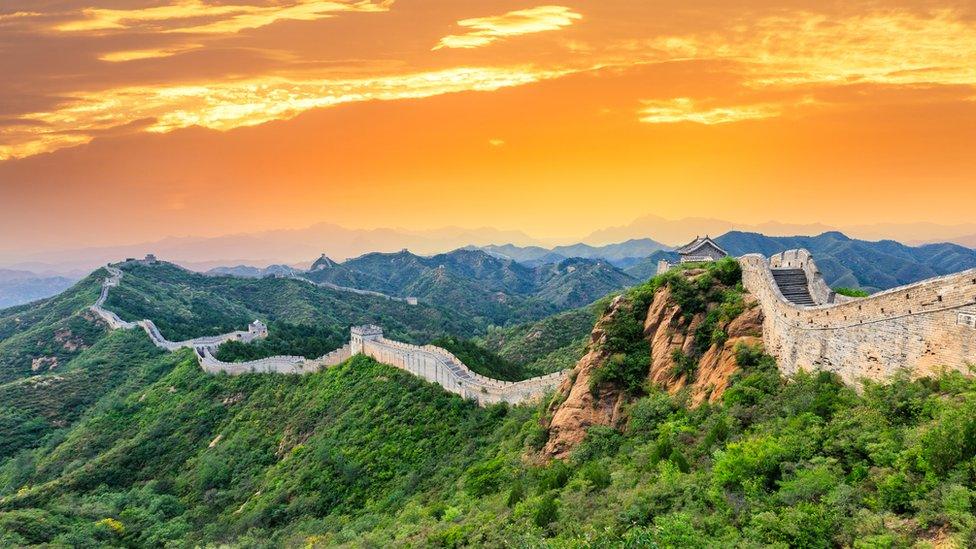
The Great Wall of China is the world's longest wall and biggest ancient architecture.
The Great Wall of China is a seriously impressive feat of engineering. Stretching for 21,196km, it is the world's longest wall and biggest ancient architecture.
Take a stroll along these ancient, winding stones and you can expect to see all kinds of beautiful scenery, including beaches, rugged mountains and a desert.
Over 2,000 years, the wall was rebuilt, maintained and enhanced. The majority of the existing wall was built during the Ming Dynasty between the years 1358-1644AD.
- Published2 November 2017

- Published25 June 2018

- Published19 December 2018

